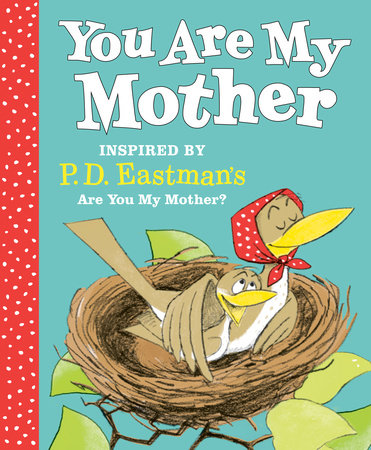In Britain, where the image appended originates, “authorities are getting the vaccine to their elderly as quickly as they can.” As dysfunctional and perfidious as Albion certainly is, there doesn’t seem to be any debate over the urgent need to protect the vulnerable elderly. It’s what a civilized society does.
The future of medicine in America is somewhat different. The “idea” is not to get too fixated on the old, who are dying of the China Virus. After all, America’s elderly are overwhelmingly white and hence privileged.
That is the immoral non sequitur coming from the nation’s ethicists. Non sequitur why? Because, from the fact that one is old, it doesn’t follow that one is white and privileged. Moreover, from the moral point of view, determining who shall live and who shall die based on race is indeed eugenics. Tucker Carlson called it out courageously .
Apparently, in America, eugenics practiced against whites by other whites emulating God is morally redeemable.
In America The Radical, those chosen to apply ethics to questions of public policy are morally and intellectually bankrupt. Profoundly so. One Harald Schmidt (whatever happened to the spelling of “Harold”? Too white, as in grammatical?) has advised the CDC that,
“Older populations are whiter. [sic] Society is structured in a way that enables them to live longer. Instead of giving additional health benefits to those who already have more of them, we can start to level the playing field a bit.”
As others have pointed out, the discrimination is not even based on empirical evidence (see “Essential workers should get coronavirus vaccine before the elderly, experts tell NYT“):
“…he’s wrong—Asians and Hispanics have greatest life expectancy in US,” wrote Christina Hoff Sommers. According to data compiled by worldlifeexpectancy.com from the CDC and NIH, Asian Americans have a life expectancy of 86.67 and Hispanic Americans, 82.89. White Americans have a life expectancy of 79.12.
Writes Tucker Carlson:
But in this country, a panel of ideologues at the CDC has decided that the elderly should not be at the front of the line. The CDC’s Advisory Committee on Immunization Practices (ACIP) has made a different determination, and the reasoning is simple: Old people in this country are too White to save. They even put it in writing.
Last month, the CDC’s Vaccine Advisory Committee unanimously approved recommendations from a doctor called Kathleen Dooling. According to her presentation, it is true that more lives would be saved if the elderly receive priority access to the vaccine. But here’s the problem: “Racial and ethnic minority groups [are] under-represented [sic] among adults” age 65 and older. Therefore, the elderly should not be a top priority.
According to the CDC panel, another group, those officially classified as “non-healthcare essential workers”, should get the vaccine first. Why is that? Because “racial and ethnic minority groups [are] disproportionately represented in many essential industries.”
In other words, it’s entirely racial. They’re making the decision based on race. Kathleen Dooling’s presentation concluded that doling out life-saving medicine on the basis of skin color would “mitigate health inequities.” Of course it would kill people, and she effectively concedes that. But the people it would kill come from a disfavored race, so it’s not a big deal.
It’s been a very long time since anyone close to what we would consider the mainstream has endorsed eugenics, but that’s exactly what this is. Earlier this month, The New York Times, supposedly our greatest newspaper, interviewed Harald Schmidt, a leading expert on medical ethics and vaccination at the University of Pennsylvania.
Here’s how Harald Schmidt advised the CDC: “Older populations are whiter. [sic] Society is structured in a way that enables them to live longer. Instead of giving additional health benefits to those who already have more of them, we can start to level the playing field a bit.”
This anti-white pathology emanates from American academics. The dishonorable Harald Schmidt should be stripped of his “ethicist” honorific. Institutions that teach such ethics as Harald espouses ought to be discredited, certainly not attended.
Schmidt is an anti-white activist. And, I’d urge Mr. Carlson to vaporize less about the “identity politics that divides us.” For, as I’ve argued, “It’s Not ‘Identity Politics,’ It’s Anti-White Politics”:
Every time a manifestly racist, anti-white event goes down, which is frequently, conservative media call it “identity politics.” “The left is playing identity politics.”
Whatever is convulsing the country, it’s not identity politics. For, blacks are not being pitted against Hispanics. Hispanics are not being sicced on Asians, and Ameri-Indians aren’t being urged to attack the groups just mentioned. Rather, they’re all piling on honky. Hence, anti-white politics or animus.
Having exposed this horror, a logical extension of the institutionalization of progressivism and the Critical Race Theory rot, it would be immensely helpful if the courageous Mr. Carlson and the timid conservative commentariat dropped the “identity politics” fig-leaf in favor of “anti-white politics”:
Undergirding the factional identity politics so roundly condemned is a practiced anti-whiteness. Hispanic, LGBT, plutocrat and feminist: All would concur. The road to their political salvation is in collaborating to extinguish “white dominant culture.” —ilana mercer




